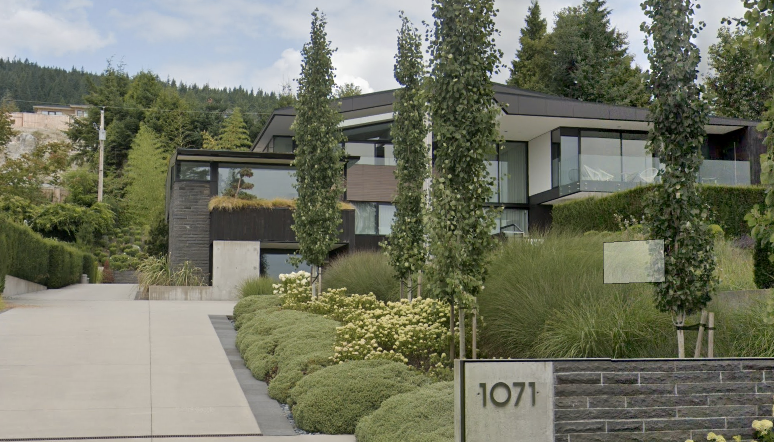A wealthy West Vancouver businessman has been found guilty of three tax offences under the Excise Tax Act for claiming GST rebates he wasn’t entitled to related to construction of a $6-million mansion he was building with his then-wife in the British Properties.
Michael Curt Helmut Scholz was found guilty of the tax charges June 18 following a trial that stretched over two years in in provincial court.
Scholz was also found guilty of two criminal charges of using forged documents, for creating and backdating false documents that he gave to tax collectors to obtain GST rebates.
The court case centred on the couple’s construction of a large home in the British Properties at 1071 Groveland Rd. 10 years ago, and whether Scholz was entitled to tax rebates claimed in connection with the project.
Under tax laws, “if you are building your own home to live in, you cannot claim any GST rebates; if you are a builder who has title to or a beneficial interest in the house and are building it to sell, then you can claim GST rebates,” wrote provincial court Judge Paul Meyers in his written decision.
Scholz claimed almost $645,000 in tax rebates between Dec. 31, 2009 and April 1, 2013.
During the trial, Scholz held out that he was the beneficial owner of the property and that he intended to sell it.
But in his decision handed down June 18, the judge ruled that wasn’t true.
Meyers wrote he found Scholz’s testimony “concocted, untruthful, farfetched and defying logic.”
The judge ruled Scholz made false statements and supplied fake documents to Revenue Canada to avoid paying GST on the house construction.
According to Meyers’ written decision, Scholz’s interior decorator wife Carolyn bought the vacant land in 2009 for $1.475 million through a share sale of the company that owned the property. The money for the purchase all came from Scholz – a multimillionaire businessman. But Carolyn was the sole beneficial owner – in order to protect the home against possible claims from Scholz’s ex-wife or potential future creditors, according to court documents.
The couple set about building a seven-bedroom eight-bathroom mansion of between 7,000 and 8,000 square feet that Scholz described in his testimony as Carolyn’s “dream house,” at a budgeted cost of about $3 million.
But costs quickly ballooned to over $6 million and the size of the house went up to 11,000 square feet.
When Scholz learned of the budget increases, he testified he was “shocked and upset” and resolved to sell the house, according to the written decision.
At the same time, he didn’t talk to any real estate agents or discuss those thoughts with the builder, architect or his wife, Meyers noted.
The judge added the couple also did not cut back on any of the luxuries planned for the house like “the pool, incredible gardens, the finely crafted built-ins, the very costly bathroom and kitchen fixtures, the floating stairway, the media room, the outside pond, the indoor putting green, the special wall for family portraits, etc.”
It was also only after Revenue Canada began investigating Scholz’s GST claims that Scholz produced a document purporting that the property was being held for him as the sole beneficiary, wrote Meyers.
After tax collectors sent him a note saying the GST rebates would have to be repaid, Scholz told investigators that he had mistakenly believed he was entitled to claim them.
Scholz repeated that during the trial, wrote Meyers.
But the judge wrote as Scholz was a former solicitor who had worked on complicated securities files, corporate purchases and financing, that was unlikely.
“In my view, [Scholz] tried to present himself as just an inexperienced husband involved in building his family home; as just being ‘sloppy, incompetent’ in his own words . . . All the while, he was drawing up complicated legal documents after the fact and post-dating them to make it appear as if they had been drawn and executed close to the time when the property was purchased,” wrote Meyers.
Scholz will be sentenced at a later date.



